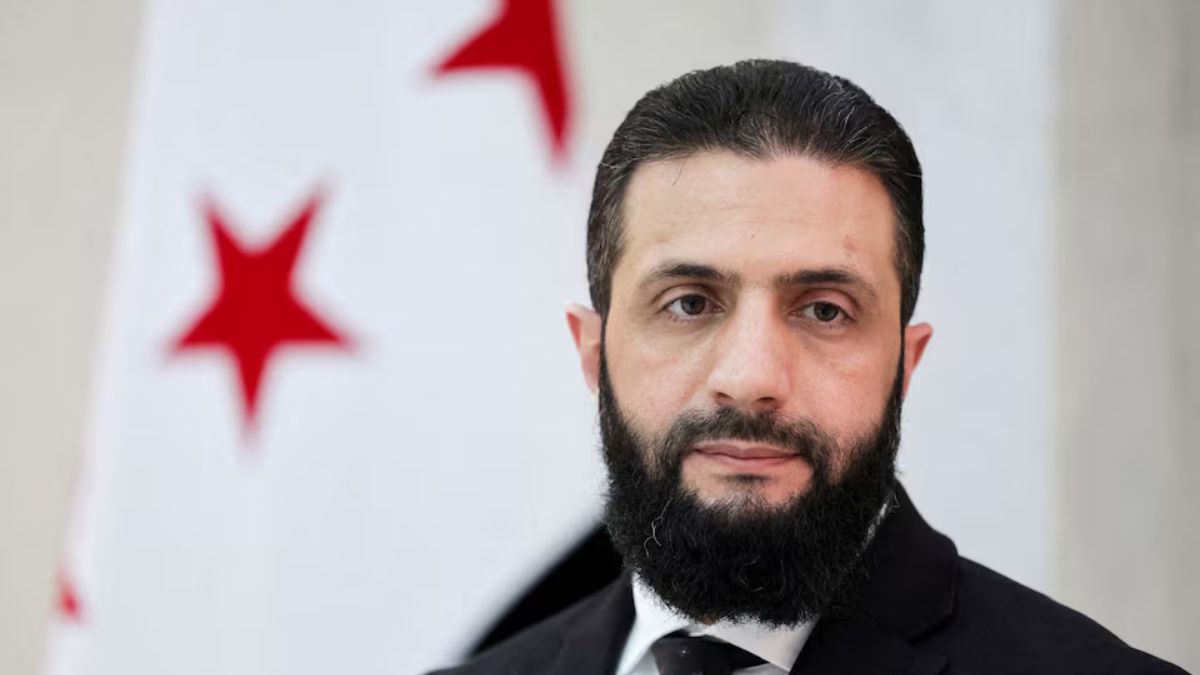OPINION | Syria's minority question: Can Al Sharaa deliver where the Assad family failed?

President Bashar Al Assad’s fall last December was a long-awaited harbinger of hope for Syria. The brutal Alawite-dominated regime has been ruling Syria for over five decades, and the country has been free from the clutches of a tyrant as of now.
The fragile peace is already being tested as President Ahmad Al Sharaa’s new provisional government prepares to hold "fair parliamentary elections" next month.
ALSO READ | Syria and Israel hold rare direct talks in Paris: A step towards normalisation
The ballot box itself is not an assurance of a new, promising government, but the treatment of vulnerable minorities will be the litmus test, and right now, the signs are not encouraging.
The end of an era
For almost five decades, a brutal balance of power was carefully maintained by the Assad family. The founder of the Ba’ath Party, Michel Aflaq, supported the secular government, but over time, the regime ruled through a calculated strategy of ‘divide and rule’.
In exchange for loyalty, co-optation, and protection, concessions were offered to the Alawite and Christian minorities.
It was a Faustian bargain: in return for security, these communities were bound to a regime that systematically suppressed all opposition, fuelling the very sectarian resentments that would later explode in civil war.
Al Sharaa's bid for unity and legitimacy
Amidst the transition from a fractured Syria steps in Ahmad Al Sharaa. A former military commander of Hayat Tahrir Al Sham has since adopted a moderate and pragmatic approach. He is not only trading off military fatigues for a more Westernised attire but is also focusing his public statements on national unity, economic reconstruction, and the protection of minority rights.
By appointing ministers from the Alawite, Christian, Druze, and Kurdish backgrounds, Al Sharaa kept the promise of unity. This much-needed homework was done to gain legitimacy and attract foreign investments, paying diplomatic visits to countries like France, Saudi Arabia, and Türkiye.
His message is clear: the era of tyranny and bloodshed is over, and the focus is now on rebuilding a unified, stable nation.
However, the ground reality is proving to be a bit more different than what was promised. The consequences of that broken social contract are already coming home to roost.
The July clashes in the Druze heartland of Sweida have already made Al Sharaa sweat. The Druze, long wary of the Sunni-majority, have watched as forces aligned with the new government have been accused of cruelty against their people. The demands of decentralisation remain unfulfilled for the Druze.
ALSO READ | Syria sets up tripartite task force with Jordan and US to make Sweida ceasefire work
Damascus has miserably failed to deliver its promises, leaving trust-building measures hanging in the air. The pledge of the new centralised government for security guarantees was not fulfilled, eventually leading to demands for self-determination. Al Sharaa must confront these issues: words alone cannot erase deep-seated tensions and decades of fear.
Minorities in the crosshairs
The Kurdish-majority in the northeast is witnessing a similar dilemma. The Kurdish-led Syrian Democratic Forces (SDF) are in an unenviable position, who once played a pivotal role in fighting against ISIS.
To integrate SDF in the new state’s institutions, a deal signed in March 2025 between Al Sharaa and the SDF commander-in-chief, Mazloum Abdi, turned out to be a surrender to political necessity rather than a pact among equals.
With international allies being less reliable, the Kurds also find themselves in a difficult position, forcing them to negotiate with a fear of erasure of their hard-won autonomy and cultural identity.
By hosting their National Dialogue Conference on August 8, 2025, in Hasakah, which Druze leader Hikmat Al Hijri also attended, signalled they will not return without a concrete guarantee for their future.
It is a never-ending dawn for the Christian and Alawite communities, replacing old fears with new uncertainties.
Despite the new government's promises not to engage in retribution against the Assad loyalists, the situation is flipped: every day, violence in the coastal areas has left Alawites feeling vulnerable.
Old fears, new anxieties
In recent years, Christians are emigrating after facing existential threats, with only few staying back to see if the new government’s promises of protection are more than just rhetoric.
Although Al Sharaa has met with Christian leaders to assuage their safety concerns, trepidations remain. It leaves a big question for the people of Syria: can a single, centralised authority—even with the best intentions—unify a country that has been fragmented by civil war, foreign intervention, and historical animosities?
The upcoming parliamentary elections have brought along anxiety rather than joy.
Speculations are rife on the new design of the electoral system that replaces a popular vote with a local electoral committee and presidential appointments, designed to subdue and legitimise a new power structure.
While providing a veneer of stability for the new regime, it also risks alienating the very communities it needs to win over so as to achieve a lasting peace. The system hands over sweeping powers to Al Sharaa.
Should he choose to renege on his promises, no check exists to prevent the return to the one-party rule that defined the Assad regime.
The choice remains entirely with the new government—whether to embrace genuine political pluralism or to go back to coercion. Until then, the promise of a new Syria remains an unfinished story.
The author is a doctoral candidate at the Centre for West Asian Studies, Jawaharlal Nehru University, New Delhi.
The opinions expressed in this article are those of the author and do not purport to reflect the opinions or views of THE WEEK.
Middle East